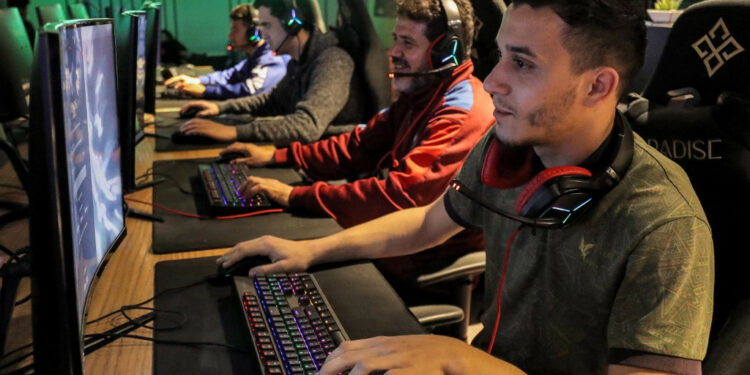Isolated by decades of Khadafi tenure and of post-revolution chaos, Libyan gamers are now taking on the world. It’s late at night in the Muslim holy month of Ramadan, and in the suburb of Tajoura, teenagers with headphones clamped to their ears gaze into state-of-the-art screens in the modern gaming complex.
Read More: WTO, A Slowdown in World Trade Growth in 2023
Unlike in other Arab states, “the gaming community was completely dead here” until recently, says Sofiane Mattouss, a computer science student, who runs the business set up in 2022.
Six gaming halls have already sprung up in the capital, with others in major cities such as Benghazi located further east.
Stuck on screens or comfortably installed, students play football or engage in epic electronic battles.
Read More: World Bank Approves Nigeria‘s Social Program Funds
Tripoli’s mushrooming arcades have driven rapid growth in Libya’s nascent gaming community, Mattouss says. Player Karim Ziani, 20, puts down his headphones and declares that the growth of e-sport is “a good thing, even for the development of the country”.
“It will help, God willing, to eradicate the phenomenon of misconduct behaviours among youth within the society.”
Gaming industry experts say the Middle East and North Africa are high-growth regions, with Saudi Arabia, the UAE and Egypt among the largest markets. New pastimes and private sector investment are surging into Libya, which even launched an e-sport federation in 2018.









